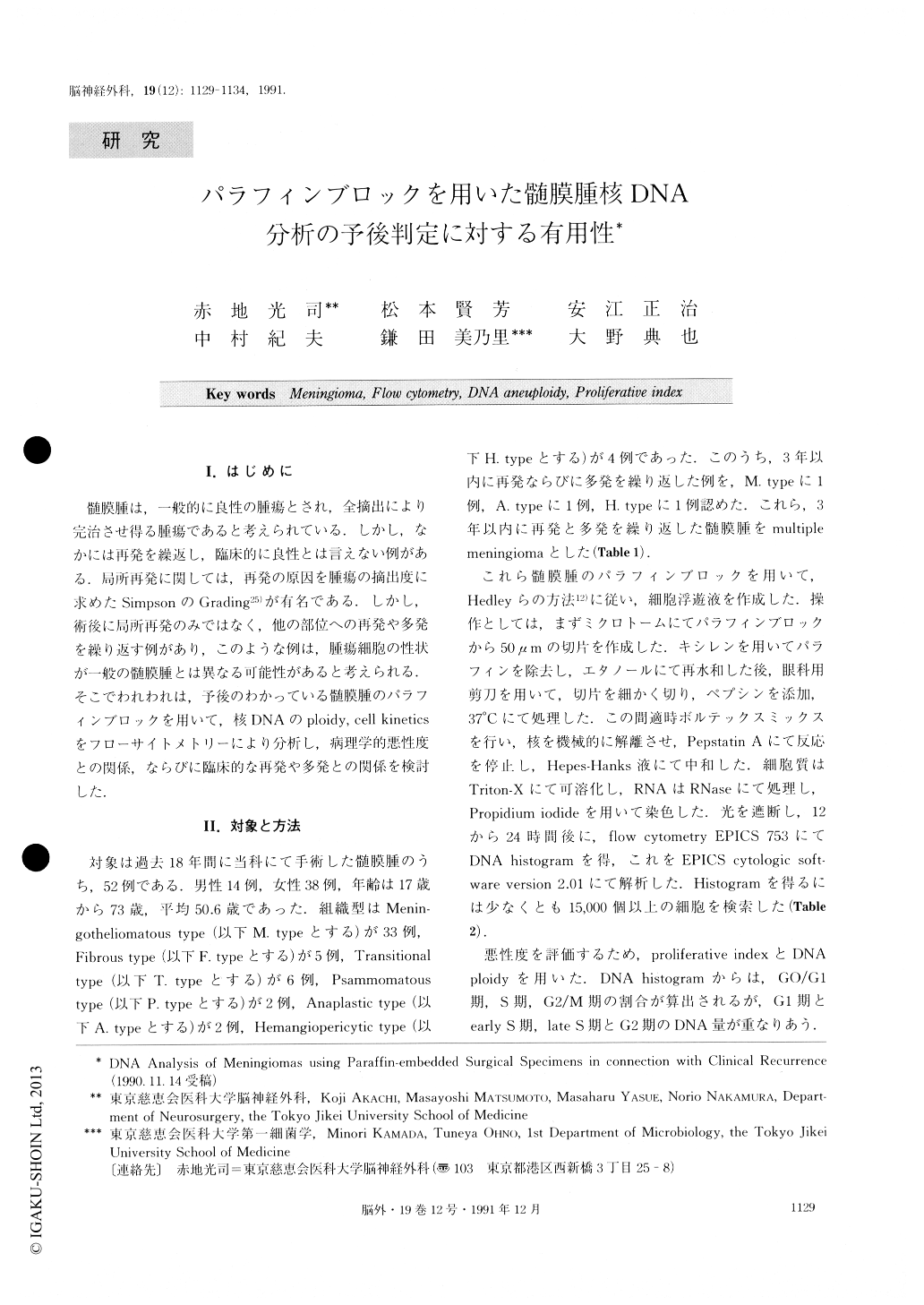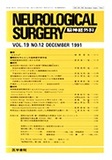Japanese
English
- 有料閲覧
- Abstract 文献概要
- 1ページ目 Look Inside
I.はじめに
髄膜腫は,一般的に良性の腫瘍とされ,全摘出により完治させ得る腫瘍であると考えられている.しかし,なかには再発を繰返し,臨床的に良性とは言えない例がある.局所再発に関しては,再発の原因を腫瘍の摘出度に求めたSimpsonのGrading25)が有名である.しかし,術後に局所再発のみではなく,他の部位への再発や多発を繰り返す例があり,このような例は,腫瘍細胞の性状が一般の髄膜腫とは異なる可能性があると考えられる.そこでわれわれは,予後のわかっている髄膜腫のパラフィンブロックを用いて,核DNAのploidy,cell kineticsをフローサイトメトリーにより分析し,病理学的悪性度との関係,ならびに臨床的な再発や多発との関係を検討した.
Meningioma includes some clinically malignant cases which grow multifocally or recur rapidly. To develop methodology to distinguish clinically malignant cases, we examined the nuclear DNA of meningiomas by flow cytometry using paraffin-embedded specimens. 52 sur-gical specimens were studied from 52 cases of menin-gioma. Among these cases, 3 multiple meningiomas that recurred multifocally within 3 years were included.
Malignancy was assessed by the proliferative index (%S+%G2/M) and DNA ploidy of the specimens.
Six cases were histologically malignant, while aneu-ploidy was observed in only 2 (33.3%). No significant correlation was observed when analyzing the 23.9% aneuploidy rate among benign cases. Moreover, three cases of clinically malignant meningiomas were all di-ploid.
In contrast, the proliferative index of 19.82±9.45% among histologically malignant cases was significantly higher as compared to that for benign cases (11.50 ± 5.49%). The proliferative index was 15% or more (average 22.02±6.01%) for patients with clinically malignant meningioma. This was considerably higher than the corresponding value for clinically benign meningiomas.
Our analysis indicated that the assessment of benig-nancy or malignancy of meningioma on the basis of DNA ploidy alone is difficult. The proliferative index so obtained relates significantly to prognosis, apparent-ly providing a useful prognostic assessment.

Copyright © 1991, Igaku-Shoin Ltd. All rights reserved.


